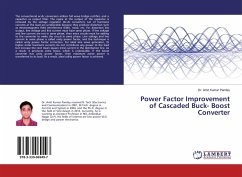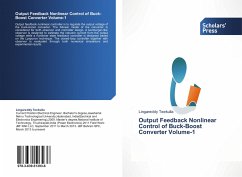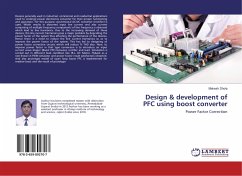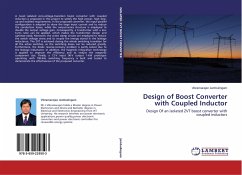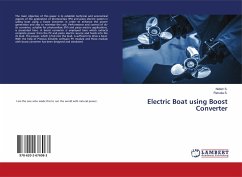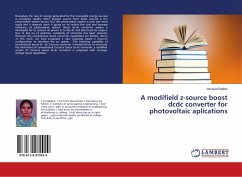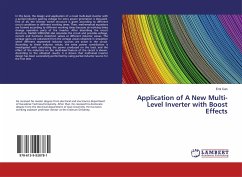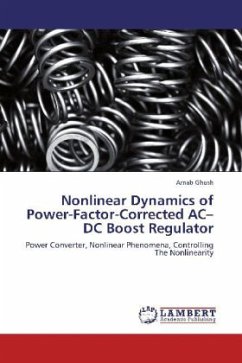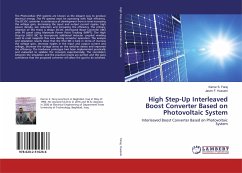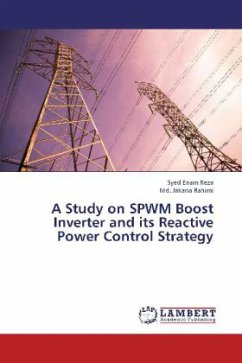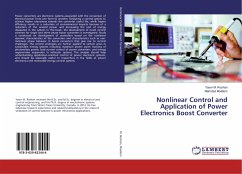
Nonlinear Control and Application of Power Electronics Boost Converter
Versandkostenfrei!
Versandfertig in 6-10 Tagen
41,99 €
inkl. MwSt.

PAYBACK Punkte
21 °P sammeln!
Power converters are electronic systems associated with the conversion of electrical power from one form to another. Designing a control system to achieve higher robustness extends the converter useful life, while higher efficiency results in a reduction of environmental impacts because of a reduction of the wasted power and decreasing the cost of energy dissipated in the system. In this book, the development of novel control schemes for single and three phase boost converters is investigated. Study is conducted on development of controllers based on the nonlinear dynamic characteristics of th...
Power converters are electronic systems associated with the conversion of electrical power from one form to another. Designing a control system to achieve higher robustness extends the converter useful life, while higher efficiency results in a reduction of environmental impacts because of a reduction of the wasted power and decreasing the cost of energy dissipated in the system. In this book, the development of novel control schemes for single and three phase boost converters is investigated. Study is conducted on development of controllers based on the nonlinear dynamic characteristics of the converters and characteristics such as non-minimum phase behavior in boost converters that give rise to control challenges. The control strategies are further applied to certain areas in sustainable energy systems including maximum power point tracking of photovoltaic panels, load current control of power converters, and energy regenerative suspension in vehicular systems. The analysis should help understanding application-oriented control of power electronic systems, and should be especially useful to researchers in the fields of power electronics and renewable energy control systems.



